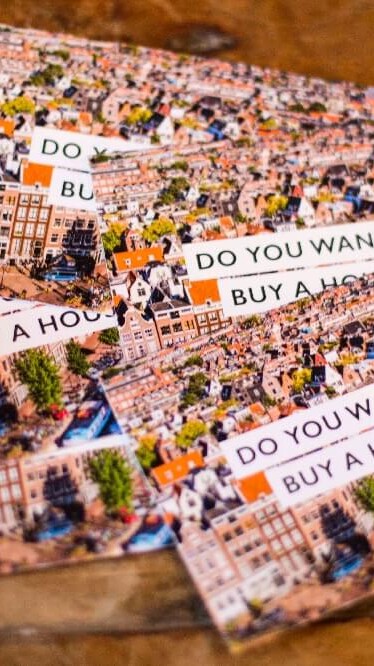Monique Burgemeester recently sat down with Anne-Marie Snel, a notary and owner of Prinsenhof Notarissen in Prinsenbeek, a charming village near Breda. Anne-Marie began her career in 1994 and quickly discovered her passion for notarial work. Over the years, she has built a strong reputation as a trusted notary, offering personal attention to her clients, including a growing number of expats. In this interview, Anne-Marie shares her insights into the home-buying process in the Netherlands and explains the critical role a notary plays in property transactions.
What is the Expat Home-Buying Journey in the Netherlands?
Once you’ve found a property and partnered with a reliable real estate agent, the next step is to involve a notary to finalize the legal aspects. As an impartial party, the notary reviews contracts to ensure that everything is handled without conflicts of interest.
You will visit the notary twice:
- First visit: To sign the purchase and sales agreement.
- Second visit: To sign the transfer deed. You will also sign the mortgage deed during this visit if you require a mortgage.
“In Amsterdam, the notary usually prepares the sales contract,” Anne-Marie explains, “while outside Amsterdam, this is typically handled by the seller. Additionally, Dutch law requires buyers to declare the source of their funds to prevent money laundering, a process overseen by the notary.”
What Should Expats Be Aware Of?
Anne-Marie emphasizes the importance of understanding certain details.
If you don’t speak Dutch, an official translator must be present when signing the deeds. This cost should be included in your budget.
“Expats should also consider which laws apply to their assets as residents of the Netherlands, such as tax laws or inheritance rules,” Anne-Marie notes. “For instance, you’ll need to decide who will inherit your possessions, including your home, after your death. The notary ensures compliance with both Dutch and international laws.”
What to Bring to the Notary’s Office
For your first visit, you will need:
- A valid ID.
- A completed “Herkomst Eigen Gelden” form (Source of Funds form), is required under the Money Laundering and Terrorist Financing (Prevention) Act (Wwft).
For your second visit, you will need:
- A valid ID.
- Proof of payment for the purchase price, if applicable.
- Any additional documents requested by the notary, such as a power of attorney if someone else is signing on your behalf.
“It’s always a good idea to check with the notary’s office beforehand to ensure you have everything in order,” Anne-Marie advises.
When Do You Get the Keys and Become the Official Owner?
“You officially become the owner of the house after signing the deed of transfer at the notary’s office,” Anne-Marie explains. Once the deed is signed and the notary confirms that the purchase price has been paid in full, the keys are handed over. This typically happens right after the signing, either at the notary’s office or directly with the seller.
How Does the Land Register Work?
The Land Register, or Kadaster, is a cornerstone of the Dutch property system. It records all properties, including ownership, boundaries, and legal rights such as mortgages.
“When you buy a property, the notary registers your ownership in the Land Register,” Anne-Marie notes. “This makes your ownership official and protects your rights. It’s a reliable system that helps resolve disputes and provides peace of mind.”
Anne-Marie’s Top Tip for Expats
Expats should not only focus on the home-buying process but also consider estate planning and tax implications, particularly regarding inheritance laws. These can vary significantly depending on your country of origin.
Her most important advice: “Always make sure you fully understand what you’re signing.”
About Anne-Marie
With decades of experience in both small and large notary offices, Anne-Marie has developed a unique perspective on her profession. As the owner of her practice, she provides personalized attention to every client. Fluent in English and knowledgeable about international laws, she is particularly skilled in helping expats navigate the Dutch real estate market.
If you’d like to learn more or get in touch with Anne-Marie, you can find her on LinkedIn: Anne-Marie Snel, or via Prinsenhof Notarissen.

